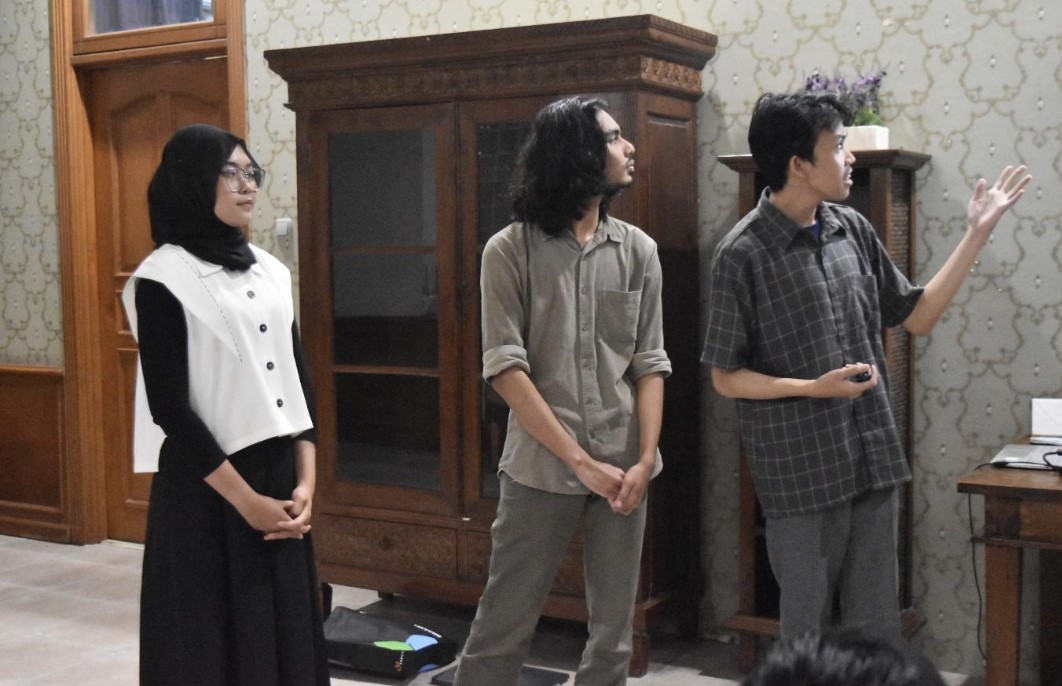Prof. dr. Rob F. Mudde: Collaboration is the Key to Building a Research Culture
By Adi Permana
Editor Adi Permana

BANDUNG, itb.ac.id— Institute for Research and Community Services (LPPM) of Institut Teknologi Bandung (ITB) held the 5th discussion in the Discussions Series on Excellent Research Culture via Zoom and YouTube on Wednesday (10/07/2021).
Rector of ITB Prof. Reini WIrahadikusumah, Ph.D., began the discussion by explaining the research culture through the learning process. According to her, building a research culture requires attitude, passion, and consistency to create researchers who prioritize research culture.
Then the discussion was taken over by Dr. Suprijanto as moderator and Prof. dr. Rob F. Mudde as the speaker. The discussion topic is Scientific Excellence is a Process, Not a State. According to Prof. Mudde, the perfect research results can not be achieved by chilling and lying down. Research culture is counting on the learning process and the research itself.
"Perfection is not the purpose of doing research. It is only the meaning of the final step of research. We should believe not only in what our powers are but also in what the benefit is to create a better world," Prof. Mudde stated.
For example, institutional ranking is important, but it is not the final purpose. The final goal of doing research is to create human researchers who have a social responsibility for their knowledge.
Prof. Mudde continued that research culture is achieved by collaborating with academics from various backgrounds in solving community problems. Thus, the research becomes more holistic in preparing steps and solving complex problems. It is essential to realize that a problem can not be solved by depending only on one scientific discipline.
"Collaboration is the key in achieving the research standards. We need to keep that standard to achieve our big mission," Prof. Mudde explained. This leads the university to strive to create young researchers' candidates who can work together across disciplines.
Prof. Mudde agrees that this step is taken not only for career preparation but also to help graduates answer all future demands. One way to realize that is to invite students to participate in a large research project with students from various study programs. According to him, this method can sharpen their technical skills and analytical thinking. It also brings them around that everyone has their own role.
"Nevertheless, collaborating in teams causes academic consequences for the student's future career journey. The individual ability will not be recognized too much," Prof. Mudde reminded.
Even so, Delft University of Technology was reported to have expanded a reward system for each of its students. Instead of depending too much on the number of scientific publications and accreditation, students will be steered to be responsible people for the projects they carried. Being in charge can encourage students to actively participate in the project. It can even motivate alumni to donate for the project continuity and the mutual benefit.
Prof. Mudde also mentioned the importance of diversity and affiliation from various nationalities in research projects. "Also, gender equality is crucial so that all female students can be fully empowered," he said.
Reporter: Zahra Annisa Fitri (Urban and Regional Planning, 2019)
Translator: Zahra Annisa Fitri (Urban and Regional Planning, 2019)

.jpg)

.jpg)
.jpg)
.jpg)



